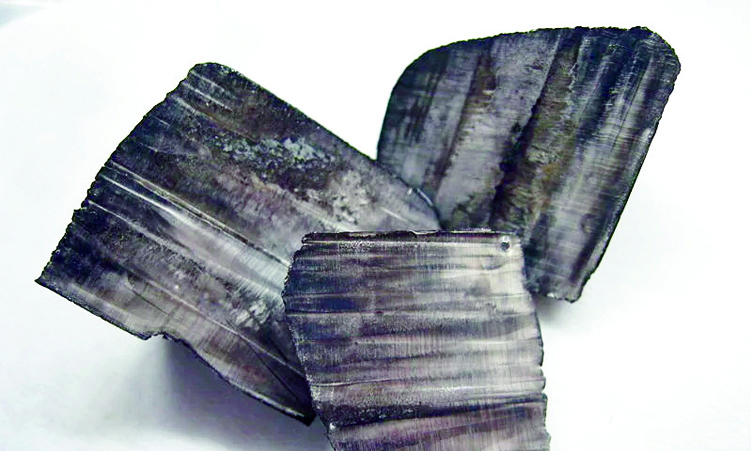Namibia has banned the export of unprocessed critical minerals, such as crushed lithium ore, cobalt, manganese, graphite and rare-earth metals and elements, as the country seeks to get maximum benefits from the growing global demand for metals used in clean energy technologies.
This was announced on Thursday by the deputy minister of information and communications technology, Emma Theofelus, in a briefing on Cabinet resolutions.
“The Cabinet has approved the prohibition of the export of certain critical minerals such as unprocessed crushed lithium ore, cobalt, manganese, graphite and rare-earth minerals,” Theofelus said.
“Smaller quantities of the above-mentioned minerals may be allowed for export at the discretion of the minister of mines and energy, subject to Cabinet endorsement,” she said.
Namibia has large deposits of lithium, which is vital for renewable energy, a sector in which the country plans to play a major part, as well as rare earth minerals, such as dysprosium and terbium needed for the manufacture of permanent magnets in the batteries of electric cars and wind turbines.
Namibia’s rare-earth metals are attracting growing interest as the world shifts away from polluting fuels to renewable energy.
Last year, Namibia signed an agreement to supply rare-earth minerals to the European Union under the bloc’s plan to reduce its reliance on China for critical minerals.
The Cabinet decision may have been influenced by the controversy surrounding Chinese company Xinfeng Investments, which is involved in lithium exploration in the Erongo region regarding the way it has obtained its new licence.
The matter has been subject to a court process.
Namibia began exporting lithium concentrate from its first large-scale lithium mine developed by Desert Lion Energy in the Erongo region in 2018.
Some firms with critical minerals projects in Namibia include the Australia-listed Prospect Resources, Arcadia Minerals, and Askari Metals.
Celsius Resources and Namibia Critical Metals are developing cobalt and rare-earth projects, respectively.
There have been reports that certain unscrupulous companies have been shipping large quantities of minerals out of the country under the pretext of sending samples for testing abroad. This has prejudiced the country regarding revenue from taxes and royalties.
Currently, Namibia, like the rest of Africa, has little capacity for lithium mineral processing, the further refining of lithium chemicals, or the manufacturing of battery components.
This leads to a typical situation where mineral concentrate is exported: Value is added outside Africa, and products using lithium-ion batteries are then imported into the country.
Another African lithium producer, Zimbabwe, banned lithium ore exports in December, allowing only concentrates to be shipped out.
Zimbabwe says it wants lithium miners operating in the country to work towards producing battery-grade lithium locally and could impose a tax on the export of lithium concentrate in future.
GLOBAL OUTLOOK
According to the CRU Group, Clean energy technologies, such as wind turbines, rely on permanent magnets built from rare earth elements, among others.
The number of critical minerals varies greatly, with some lists containing as many as 50 separate minerals.
Some of the more commonly known and well-established commodities include lithium, cobalt and nickel, while lesser-known ones include germanium – which saw as little as 130 tonnes of global production in 2020.
According to the International Energy Agency (IEA), ‘Demand for these [critical] minerals will grow quickly as clean energy transitions gather pace.’
Overall, renewable energy requires far greater amounts of critical minerals in comparison to traditional fossil fuel sources, ranging from seven tonnes per megawatt capacity for solar photovoltaics to approximately 16 tonnes per megawatt capacity for offshore wind, whereas natural gas requires approximately one tonne per megawatt capacity.
For electric vehicles (EVs), it is a similar story.
EVs require a wide range of battery minerals such as lithium, cobalt and nickel. According to the IEA, an EV uses, on average, 207 kilograms of critical minerals per vehicle in comparison to 34 kilograms for an internal combustion engine.
– email: bottomline@namibian.com.na
Stay informed with The Namibian – your source for credible journalism. Get in-depth reporting and opinions for
only N$85 a month. Invest in journalism, invest in democracy –
Subscribe Now!






